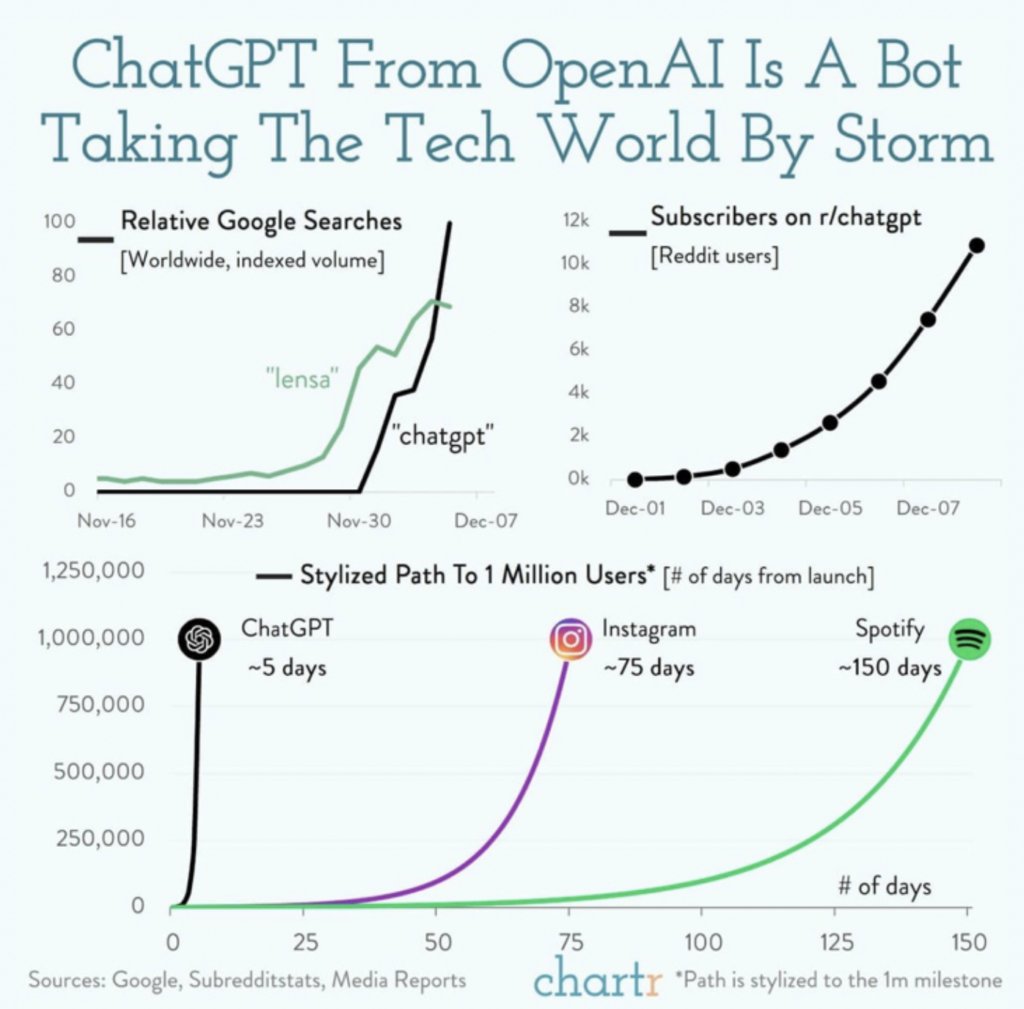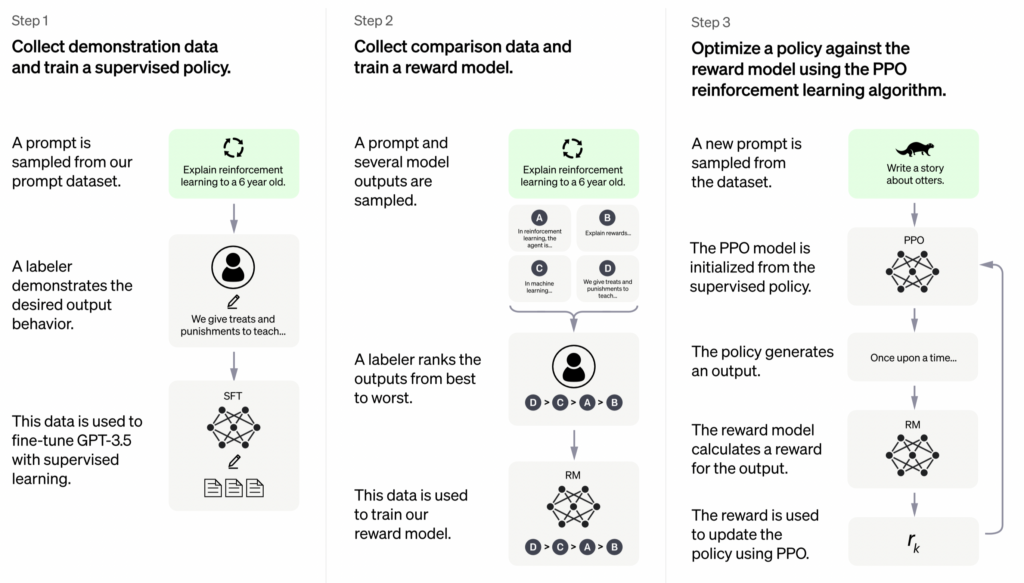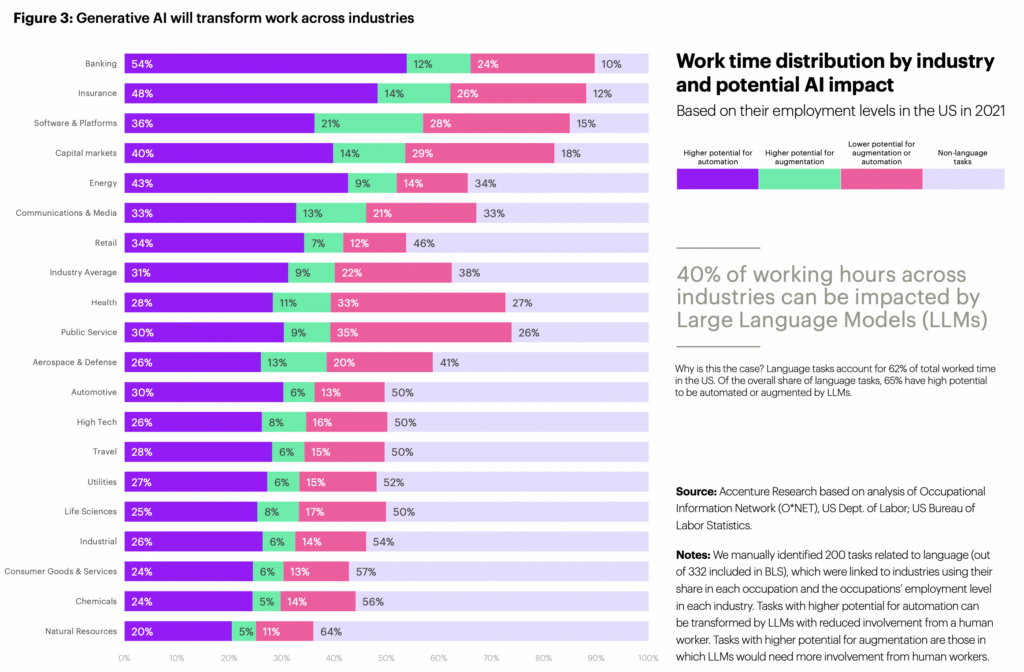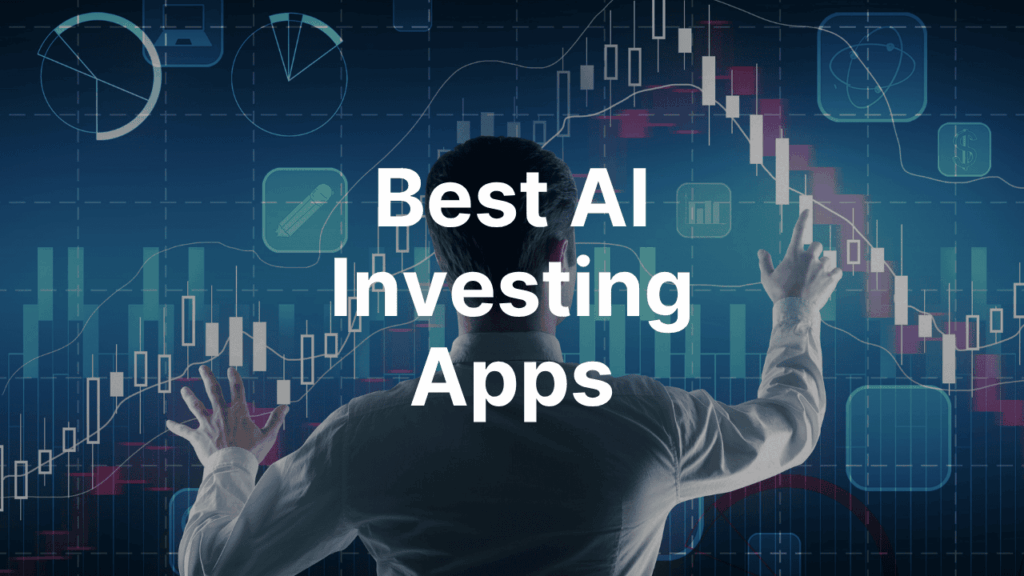There are a few good AI investing apps that automate the process of buying stocks, funds and portfolios. There are even a few that have AI tools in their app that can guide you on what to invest in. But you must be cautious, automated investing using artificial intelligence is something that even the largest hedge funds in the world avoid.
Even Charlotte Street Capital, the once most profitable hedge fund in the world, used to turn off their trading systems where there was not a human being watching over them. If you’re interested in that, you should read Michael Lewis’s excellent book Going Infinite, which talks about how Sam Bankman-Fried used to trade.
AI Investment Apps
Here is a rundown of the best investing apps where you invest in AI and use automated portfolio rebalancing:
- Interactive Brokers – uses capitalise.ai to create automated strategies
- IG – lets you trade AI US stocks for free
- InvestEngine – lets you invest in AI ETFs (with zero commission)
- Wealthify – lets you invest in portfolios that automatically change based on risk
- eToro – lets you invest in AI portfolios
If you’re looking for an AI that can help you invest, you can try Finchat.io which claims to be an all-in-one investment research platform combining institutional-grade financial data, analytics, and conversational AI. Although I’ve tried it, and whilst it gives a good overview of what is going on, it can’t really tell you what to invest in.
Automatic Investing Apps
There are also some great robo-advisors that help you invest, automatically adjusting your portfolio to risk and financial events:
- Moneyfarm – has a great choice of risk-based portfolios
- Wealthify – is owned by insurance giant Aviva
- IG – has Smart Portfolios for automated investing
How To Invest In AI (Artificial Intelligence Investing Explained)
To invest in AI you can buy stocks that profit from artificial intelligence like Nvidia, BigBear or ETFs that have more diverse exposure like the Global X Robotics and AI ETF (BOTZ). As the majority of these stocks and ETFs are listed on US stock exchanges and traded in USD you will need a share dealing account that provides access to US stocks like Interactive Investor or Hargreaves Lansdown. This guide explains how to invest in AI and build a portfolio of Artificial Intelligence realted stocks and ETFs.
🤔Note: Diversify
Whilst you can build a diverse portfolio of AI stocks, you should also consider investing in other sectors in case the demand for AI crashes. For example, if it is banned or (in the very unlikely event) there is not a profitable use case for it.
⚠️What to watch out for! Hype
Is AI investing a megatrend or chasing rainbows? The emergence of generative artificial intelligence (AI) has sparked great interest among investors. The explosive rise of ChatGPT, in particular, started a frantic race among tech giants to lead the sector. But becuase there has been so much hype around the sector investors have rushed to invest in and pushed AI stock prices higher, so they could be overvalued and fall in value.
- Related Analysis: 7 AI Stocks That Could Be Huge Winners In The Long Run
Why invest in Artificial Intelligence (AI)?
No sector in the world is hotter than artificial intelligence (AI) right now. AI is a computationally intensive tech system employed to analyse data statistically, calculate rules mechanically and make decisions independently on a variety of subjects.
Previously this sector was developing quietly and under the radar of many investors. Then, the emergence of ChatGPT – a generative software developed by Openai.com using AI – captured the popular imagination of investors. So powerful is the software that it is slowly replacing the many functions of white-collar workers.
AI became a ‘must have’ theme among big institutional fund managers. For us retail investors, the more relevant question is this: How can we ride this mega AI tech trend?
Yes, the potential returns from the AI sector appear to be tantalising high. But are they real? Can these returns be captured at all?
The first thing to note is that there are very few AI-only stocks. Many companies are employing AI methods in their businesses, such as Google (US: GOOG), but these enterprises have the bulk of their revenue derived from somewhere else. AI is merely the enabler tech.
Many traditional companies like WPP (UK: WPP), the advertising conglomerate, uses AI across their portfolio of brands only to improve the productivity of their products.
Unless investors understand each business intimately, it is difficult to know if a company is using AI in its work and how entrenched their business models are to AI systems. They may talk like they are AI companies, but in reality they may be a different animal altogether.
Practical questions that investors should ask include:
- When a company uses just some AI in its main work, does it make it an AI company?
- Is it better to invest in AI system creators or AI system users?
- At what point should public investors buy the AI theme?
Right now, Nvidia is reaping most of the profits from the AI boom. Buying Nvidia now is akin to the classic strategy of buying the ‘shovel sellers’ during a gold rush. Never mind the gold in the ground, just capture to booming demand for digging tools.
If an investor is not really sure which AI stock is the best play on the sector, perhaps sticking to a more general tech ETF or AI ETF is more suitable strategy.
Should you invest in AI Stocks now?
AI is the latest fad to hit the market. Given the buying pressure on the sector, many veteran investors are labelling it as a ‘bubble’. This is understandable.
For those investors looking to buy into the sector, therefore some degree of caution is warranted.
First, the macro backdrop continues to be choppy. Interest rates are higher than a year ago and this will have a negative impact on the tech sector. Second, after a nine-month rally, many tech stocks are looking tired.
Even Nvidia is losing its upward momentum somewhat after a massive rally. Yes, the company did release strong results in August, but the stock’s response is much more muted than its results day in May. A lot of optimism appears to be baked in the current share price. When a stock trades like ‘buy the rumour, sell the fact’ – be careful.
The third point concerns the timing of investing in AI stocks. This is dependent on the investor’s knowledge, skill and capital management. Wrong timing obviously will destroy portfolio returns – especially given the intense volatility of the emerging sector.
Knowing when to avoid the sector is crucial. And remember, not all things are rosy in the AI sector.
The last point worth remembering is this: When large unicorn tech stocks are listed on exchanges, this is because early backers of these companies desire to exit their investments. Public investors like you or me are unlikely to be able to buy at ‘cheap prices’ to score big returns. Ergo, retail investors must learn to buy during bear markets.
Top AI stocks with exposure to Artificial intelligence
A very small selection of AI-related stocks include:
- Nvidia (NVDA) – manufacturer of computer chips that power AI systems
- Microsoft (MSFT) – backer of openai.com (developer of ChatGPT)
- Google (GOOG) – developer of Bard, another generative AI system
- BigBear.ai (BBAI) – AI software solutions company
- SoundHound (HOUN) – a conversational AI company
- IBM (IBM) – selling AI services as part of its business model
Most of these stocks are American, so you will need a stock broker that offers access to US markets to invest in them.
One main hurdle to AI investing is predicting which AI company will succeed over the long run. This is a tall order. The technology landscape never stay constant. A ‘sure AI winner’ now may turn into a laggard in a few years later. Longevity is a hard trait to find in the tech sector – unless we’re talking those Big Tech like FAANGS.
To protect your portfolio against the risk of picking failures, using stops is essential. Another risk tactic is to diversify among a few unrelated stocks, betting no more than a percentage on each. This strategy should be augmented by ETFs.
Best AI ETFs with exposure to Artificial intelligence
The last area investors could explore are funds that invest in a portfolio of AI-related stocks.
One example is the $1.7 billion Global X Robotics and AI ETF (BOTZ). The fund holds about 45 stocks across the robotics and AI sectors. The two largest weightings are Intuitive Surgical (ISRG) and Nvidia (NVDA).
Have a quick look at the Robo Artificial Intelligence Index and ETF (THNQ). The index provider has a systematic categorisation of companies that engages in AI.
Pay attention to the cyclical nature of these ETFs. Clearly these funds display a boom-bust cycles in their price chart. Investors should be aware of these dramatic moves in the sector and only invest when the risk-reward ratio is favourable.
What is Artificial Intelligence (AI) investing?
The key elements of an AI system are: Machines, data, models, and outcomes. Essentially, the system analyses a vast quantity of data using statistical models that search for hidden patterns. From these results, the AI system generates a set of probabilistic outcomes and options. Humans then act upon these recommendations.
According to OECD/White House (report), the definition of AI is:
an AI system is a machine-based system that is capable of influencing the environment by producing an output (predictions, recommendations, or decisions) for a given set of objectives. It uses machine and/or human-based data and inputs to (i) perceive real and/or virtual environments; (ii) abstract these perceptions into models through analysis in an automated manner (e.g., with machine learning), or manually; and (iii) use model inference to formulate options for outcomes. AI systems are designed to operate with varying levels of autonomy
AI is nothing new. Scientists have been working on AI for decades. Recent developments, however, are accelerating due to better machines, a huge increase in data and more sophisticated models. In particular, over the past few years researchers have focussed on machine learning, open vision (reading images, esp facial recognition), text analysis (Natural Language Processing) and deep learning. The most stunning success of AI is beating world champions in Go.
Last November, openai.com (a private company now backed by Microsoft), released a new version of generative AI called ChatGPT (an acronym for generative pre-trained transformer). It was a phenomenal success.
According to ChartR, ChatGPT smashed 1 million global users in just five days! It remains on course to be the fastest growing app in history.

What’s stunning about ChatGPT is that, unlike previous AI-driven programs, anyone can use it. Previously, you needed to understand some programming, statistics, specialised mathematics and statistics to be able to use AI programs. Now, you simply ask a question (however daft!), it returns an answer. In other words, ChatGPT can decompose and understand human questions quite accurately; and after searching through its immense database, return appropriate answers in a matter of seconds.
Many find this program utterly fascinating. Some, on the other hand, are truly frightened by it. As the ChatGPT model learns from a vast collection of data and is able to churn out a huge range of answers based on user questions, naturally many are wondering: What’s the point of human learning when computer programs can generate most of the answers?
Look at this example as showcased on the openai.com’s website:

ChatGPT’s wide range of capabilities includes: finding answers, generating text with excellent grammatical structures, writing poems, searching databases, evaluating and calculating problem sets, dissecting computer codes and translating languages. For ChatGPT, it basically works like this (openai.com):

The capability of this generative system is scary, isn’t it? Some industry veterans are even astounded by these advances. The CEO of C3.ai, Tom Siebel, remarked just recently (Apr 23):
To the extent that we stick to supervised and unsupervised learning, we can absolutely make the models explainable. When we get into deep learning and neural networks and large language models, things become unexplainable.
The potential for abuse in generative transformers is huge and scary. As skeptical as people like to pretend they are, you and I both know they tend to believe what they see on their screens. The ability to manipulate 2 billion or 3 billion people at the level of the limbic brain is very scary stuff and it’s not talked about enough.
Apart from ChatGPT, another popular AI app is DALL-E 2. This app simply creates images from text instructions. If you combine these programs, you will soon realise the strength of these programs in absorbing and regurgitating knowledge.

Implications of a rapidly advancing AI ecosystem for investors
Make no doubt, the field of AI is advancing rapidly. There is no regressing to the ‘good old days’ before the invention of all these powerful software programs.
Heated debates are now raging in many governments on: 1) how to embrace this AI revolution, and 2) employ AI successfully at the societal level. For example, how should AI be used effectively in healthcare, drugs discovery, transport, or agriculture? What will happen to the displaced industries or workers? How can we use AI to combat fraud, improve cybersecurity or prevent disasters? These are pressing problems that policy makers around the world will face in years to come. Some are even wondering: Are we on the brink of ‘artificial super-intelligence’?
Dr Geoffrey Hinton, the inventor of many advanced AI programs, recently predicted that large-scale AI systems may be able to acquire human-like insights at an accelerating rate. He suspects that future AI programs could displace jobs, become smarter than humans and turn semi-autonomous. Moreover, he worries that given the realistic output of generative AI, can humans actually differentiate between fake and real output anymore?
An AI program that can understand a real-world problem and then start writing its own code to execute the answers is no longer a far-fetched scenario. Scientists think that many jobs will be eliminated by the ever-advancing computer programs. Some academics have started to analyse which occupations are under threat, such as paralegals and insurance:

Source: Accenture.com
Given this backdrop, an upheaval in the labour market is a distinct possibility. Some occupations are potentially at the start of a ‘horse to car’ moment. In particular, businesses will probably see some productivity gains arising from the AI revolution.

Richard is the founder of the Good Money Guide (formerly Good Broker Guide), one of the original investment comparison sites established in 2015. With a career spanning two decades as a broker, he brings extensive expertise and knowledge to the financial landscape.
Having worked as a broker at Investors Intelligence and a multi-asset derivatives broker at MF Global (Man Financial), Richard has acquired substantial experience in the industry. His career began as a private client stockbroker at Walker Crips and Phillip Securities (now King and Shaxson), following internships on the NYMEX oil trading floor in New York and London IPE in 2001 and 2000.
Richard’s contributions and expertise have been recognized by respected publications such as The Sunday Times, BusinessInsider, Yahoo Finance, BusinessNews.org.uk, Master Investor, Wealth Briefing, iNews, and The FT, among many others.
Under Richard’s leadership, the Good Money Guide has evolved into a valuable destination for comprehensive information and expert guidance, specialising in trading, investment, and currency exchange. His commitment to delivering high-quality insights has solidified the Good Money Guide’s standing as a well-respected resource for both customers and industry colleagues.
To contact Richard, please see his Invesdaq profile.




